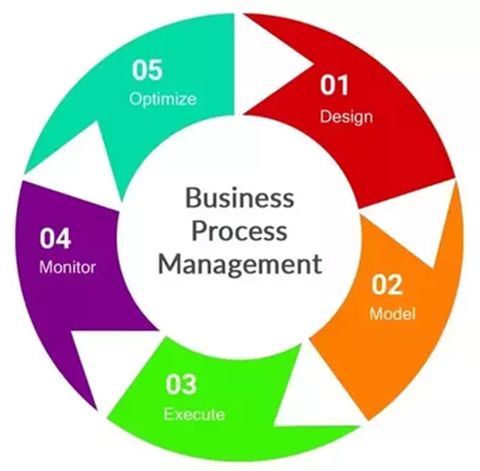
Business Process Management (BPM) is considered to be a business discipline that involves combinations of designing, modeling, execution, monitoring and optimization of business activity flows and processes.
- Modeling means that the utilized discipline would identify, define, and make a representation of the complete process to support communication about the process to the personnel involved.
- Execution means that the stages of a process are performed or enacted, which may include automated aspects.
- Monitoring means that the there is a control stage of making sure that the process follows the designed course. This designed course can be strict, or loose (control in the form of guidelines, training, and manual practices).
- Optimization means that the discipline of BPM is an ongoing activity that builds over time to steadily improve the measures of the process. Improvement is relative to the goals of the organization, and ultimately in terms of meeting the needs of customers.
BPM discipline can be utilized by an organization in order to achieve enterprise goals, to improve the performance of organization employees, to enhance the revenue values for the respective customers and partners. So basically, the BPM is a practice that must been followed for the optimization of internal processing within an organization, or a corporation. The BPM terminology can de divided into two distinct terms, the business and the process.
- Business term refers to any activity or work that is commercially viable and profitable. In that regard, the goal of a business is to provide value to the customers.
- Process is a flow of business activities which are connected sequentially towards the achievement of some business transaction. The flow of a process is not strictly defined, but can take any form; thus, it is a flow that can de adjusted to the needs of an organization.
In the BPM area of operations, our company creates fully customized end to end total solutions for our customers that include mobile applications and back-office management systems. We achieve this by effectively transforming business requirements into technical functionalities to be integrated to our proposed solutions. Our BPM expertise includes solutions for super market chains, aircraft machinery companies, solar cell monitoring and smart metering. Our solutions include Content Management Systems (CMS) and Back-office management tools. You can find our BPM portfolio here.
